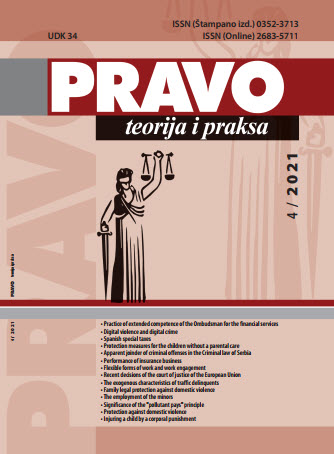Flexible forms of work and work engagement
Flexible forms of work and work engagement
Author(s): Sladjana Gligorić M, Sanja ŠkorićSubject(s): Labour and Social Security Law
Published by: Pravni fakultet za privredu i pravosuđe u Novom Sadu
Keywords: work and labor relations; flexible forms of work; flexible organization of working hours
Summary/Abstract: Global trends in the working world clearly show the changes in the character of labor relations with a significant representation of flexible forms of work. It is an atypical form of work organization that arises as a consequence of strong globalization flows, economic crisis, information and technological revolution, and which stands against the labor law standard of a classical employment, being represented in the form of the employment contract for an indefinite period of time with full time employment. Starting from the concept of flexicurity as the dominant concept in the EU, flexicurity seeks to establish a balance between flexibility in the organization of work in order to preserve stability. Through the flexible organization of work and working hours, there establishes a kind of balance between working hours, the rest time and time for socialization and social activity. However, on the other hand, a flexible organization of work can reduce the rights of the employees and workers outside the employment relationship, especially if this form of work is abused in practice by the contracts concluded contrary to their essence or legal norm. The authors use the historical, comparative- legal and sociological method, as well as the statistical data in the analysis of research subjects with the aim of providing the concrete proposals for the improvement of the existing normative framework.
Journal: Pravo teorija i praksa
- Issue Year: 38/2021
- Issue No: 4
- Page Range: 87-100
- Page Count: 14
- Language: English

